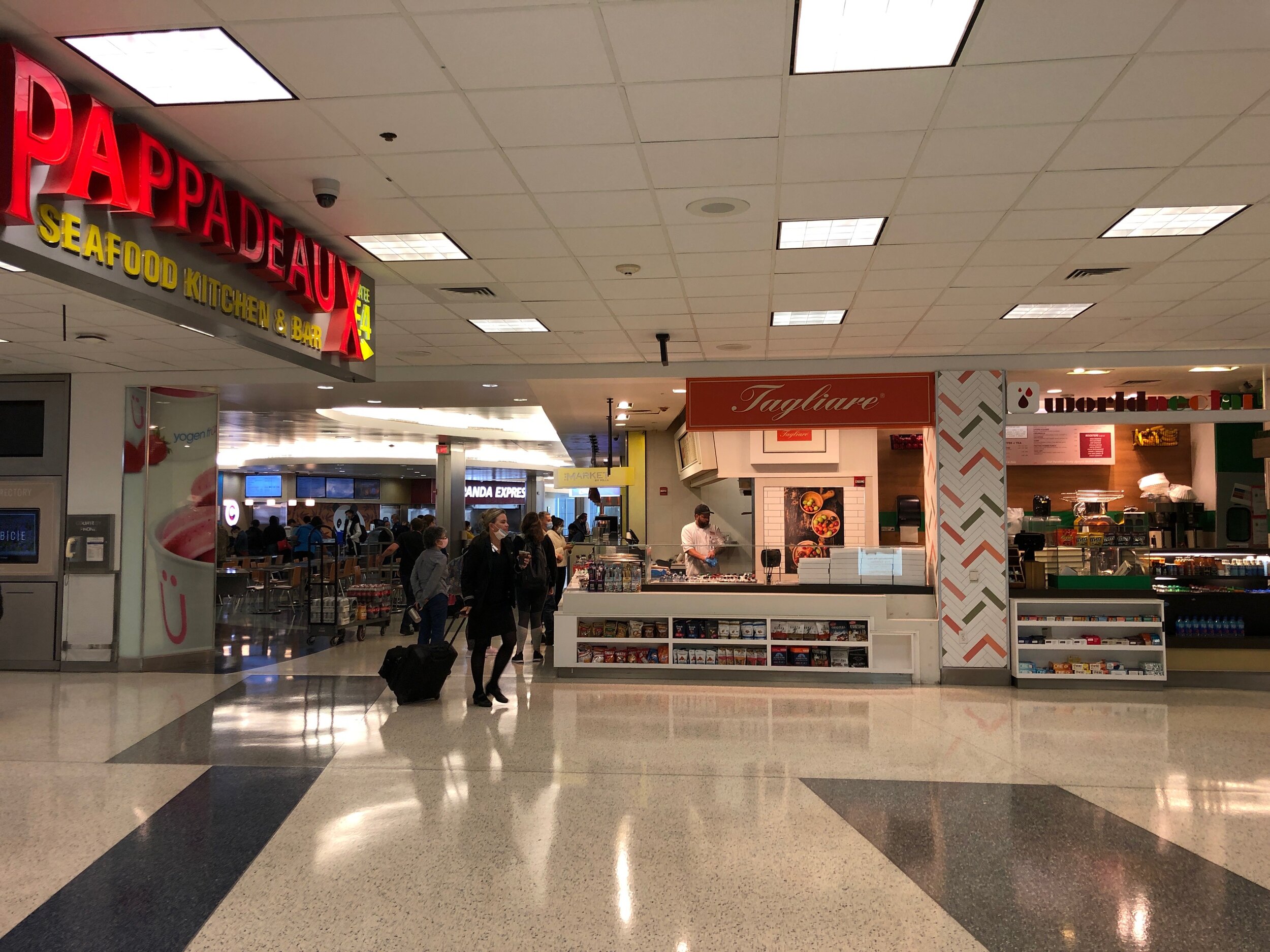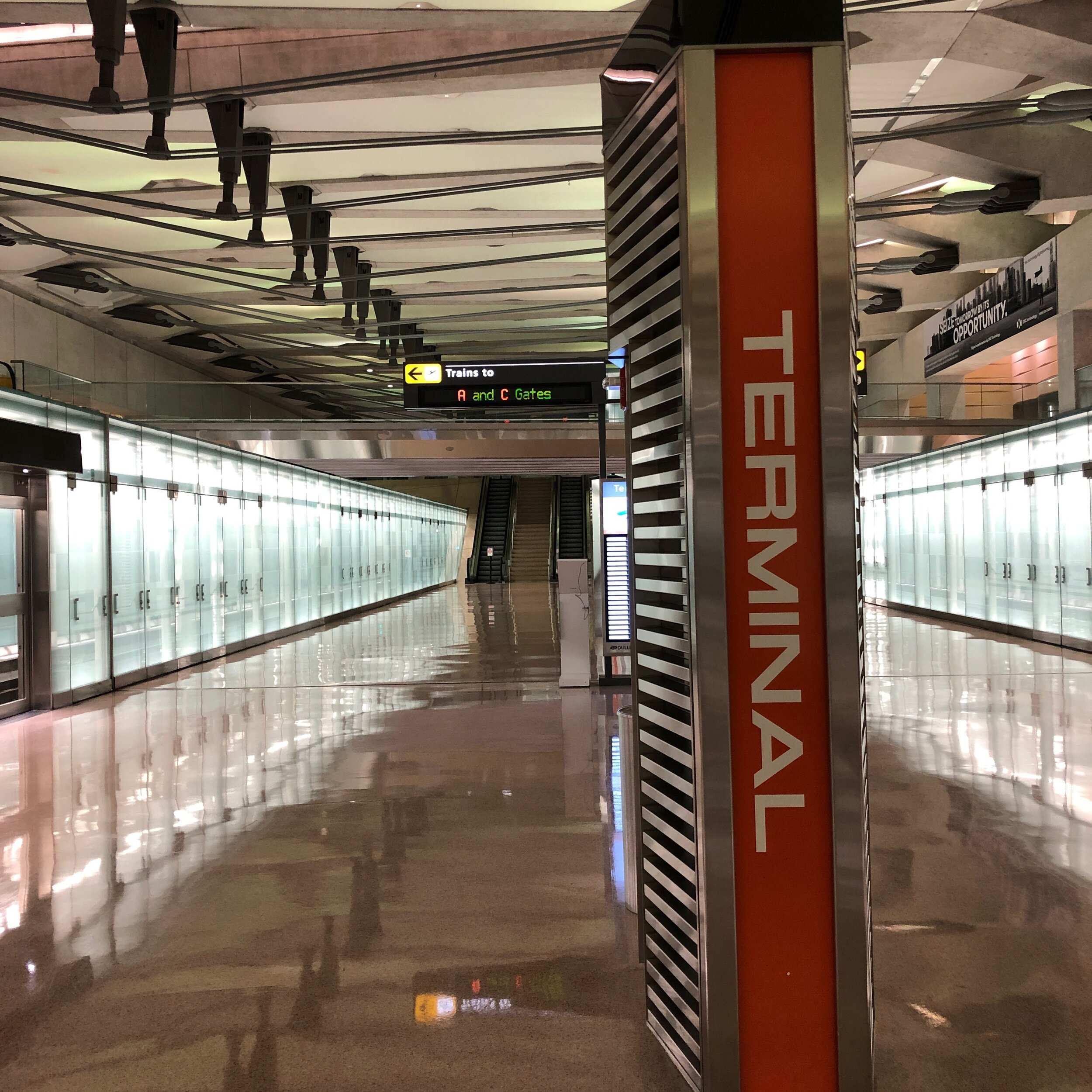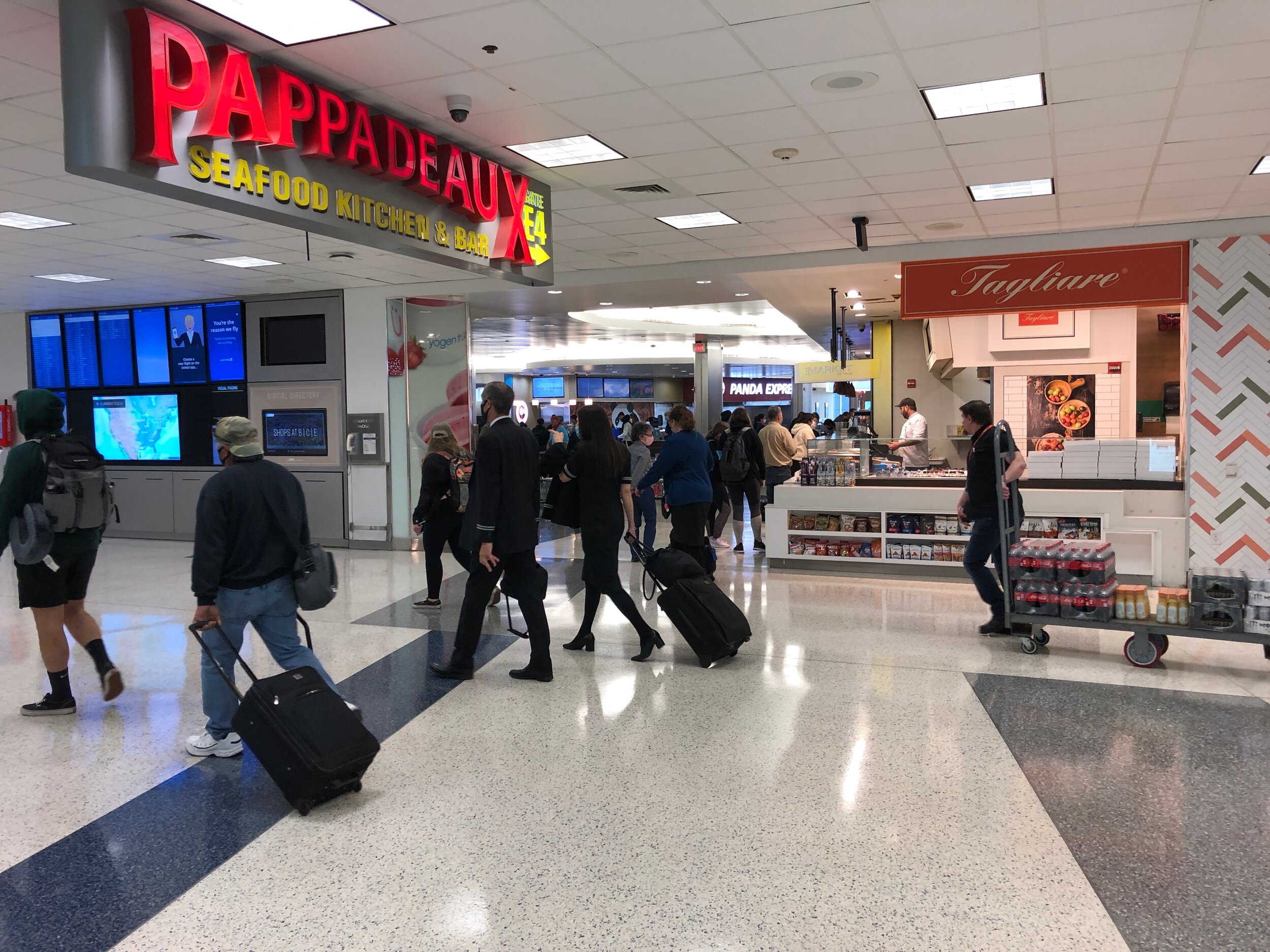Jesús started a nearly 2,500 mile journey back home early Saturday morning.
He had lived in Virginia for the past two years with his uncle but it was time head back to Ajusco in Mexico City to help his mother and father while flights were still traveling south. Just as long as he paid the additional $35 for his full carry-on bag on his United “basic economy” ticket, of course, because damn it the “we’re all in this together” airline ads don’t cover those. Sorry.
Give it a couple more years and airlines will start charging us for things like “adequate cabin pressure” or “30 minutes worth of oxygen, oxygen mask not included.”
Four different baseball caps hung from one of the straps on his royal blue backpack. A Batman symbol was emblazoned on his gray, metallic rolling bag. He was clutching a worn-out baseball mitt in his right hand.
“I like Virginia. But I’m going to ride this out with mis padres,” he said before he made his way to the United counter to check-in. Though there were about 20 of these, there was only a single person helping passengers check in. “Hay que ayudar si podemos. We have to help each other if we can,” Jesús said.
I was in a similar spot. Mi madre was in the process of moving back into our house in Houston, something that would entail several a truck and movers. By truck, she meant the van and by movers she meant me. (“No me importa donde estes, tu vienes a ayudar,” she’d say in true Mexican fashion. “I don’t care where you are, you’re coming to help.” To be fair, we considered postponing but there is nothing certain in 2020.)
The United attendant wouldn’t take his cash, one of the recently implemented safety measures. He could, however, buy a prepaid card from the store to pay for his bags. I offered to pay for him with my card. “Hay que ayudarnos entre nosotros, hermano,” I said. "Gotta look out for nuestra gente.” I asked him to drop the dollar bills into my unzipped backpack.
At 4:30 a.m., the airport’s overhead speakers were playing Linkin Park’s “Shadow of the Day.” I don’t know what airport DJ willingly chooses this type of soundtrack at such an early hour and definitely not during this pinche pandemic but the song’s late 2000s vibe had a soothing, nostalgia-inducing comfort to it. It was familiar, recognizable to at least us younger millennials. I definitely downloaded this on Limewire for my iPod shuffle at some point back in the day, I thought. This was somehow followed by, I fucking kid you not, The Head and the Heart’s “Missed Connection.”
There wasn’t an air of… tension… that morning at Dulles. Surrealism? Definitely. Two people were wearing that plastic face covering that looks like what a welder who doesn’t give a damn about his eyesight would wear. You know what I’m talking about. Behind me, a kid was fast asleep on two suitcases. Some people had that Bane-looking black mask, others whatever piece of cloth they had found that morning.
Few didn’t have masks on; no one really cast shade, though. It was too early for that. We all kept apart from each other, with the occasional side eye whenever someone got too close for comfort.
We did have to temporarily unmask for the TSA agent prior to our x-raying, a process that started off weirdly enough when I stupidly pulled the mask up, covering my eyes and eliciting a “Sir, I can’t see your face” before pulling it under my chin, getting the nonverbal “ok, you good” signal, only to have the damn thing slip from my fingers and recoil into my nose, startling me enough to let go of my backpack which almost slid off my arm.
Walking through a deserted Dulles airport felt like what I imagined Obi-Wan Kenobi must have experienced exploring the hallways of the Death Star in “A New Hope” in search of the tractor beam that held down the Millennium Falcon.
Devoid of thousands of people, the airport - which I’m pretty sure uses the same font on its signs as the Mexico City subway system - felt more like the setting of a Yorgos Lanthimos movie (complete with TSA agents’ deadpan stares) than the place where I had almost missed a flight to Las Vegas after being in the queue for 30 minutes with a hundred other people earlier in the 2020 election (remember that?).
On those long stretches with moving walkways, I didn’t see a single soul from one end to the next. Shops, restaurants and even those damn pretzel stands were closed.
For once, I wasn’t envious of first-class passengers who, in a display of class solidarity, decided to sit alongside each other, all eight of them, nice and tight and close by, social distancing be damned, I guess. Jesús and I each got our own two aisles to ourselves, a victory for basic economy travelers everywhere. (The only time I felt something similar was when, by divine intervention, the TSA pre-check line was actually longer than the normal line, a moment I obviously still savor.)
What Dulles lacked, Bush Intercontinental Airport in Houston made up for, and not in a good way.
Bar taps were flowing, watched by masked bartenders. Dozens and dozens of would-be travelers zoomed by. I was a bit confounded by how many people there were at the airport. You had to make conscious efforts to avoid human contact at certain points, zig zagging through pockets of space in the smaller hallways. Texas Gov. Greg Abbott had recently announced the second phase of Texas’ glorious reopening while D.C.’s Mayor Muriel Bowser is still cautiously weighing options. (Remember the “die for the economy” pitch from Lt. Gov. Dan Patrick?) The contrast between these two was jarring for those of us who hadn’t seen real, live herds of people post-lockdowns.
“No estuvo mal, no? Pude dormir un poco,” Jesús said as we walked into Terminal E. “That wasn’t too bad, no? I slept a little.”
Yeah, not bad. Just bien pinche raro, I replied. It’s just fucking weird, man.
Jesus was a few hours from crossing yet another frontier, not to mention what would likely be a trek from the airport to his home in Ajusco. His flight to Ciudad de Mexico was departing in less than an hour.
“Bueno, wei, un gusto. Cuidate,” he said, his blue mask hiding half of his facial expressions. He was headed to his gate. Before he veered to the opposite side, he stretched out his hand toward me, a motion that, to be perfectly honest, I hadn’t seen in weeks.
Three months ago, I would’ve dabbed him — no hesitation — a la mexicana, that “slide the palms, fist bump” salute. Or maybe shook his hand with my right and slapped his shoulder with the left. Or maybe a simple fist bump with a “de nada, wei.”
Since working from home became the reality for some of us in mid-March, I had maybe — maybe — touched, at most, two other people. I could definitely count them all on one hand. Half a hand.
“I don’t even know how to touch others anymore,” I jokingly texted my friends. “lol shut up,” some replied.
But in the past two months, my simple, unthinking, automatic reaction to an outstretched arm — the result of two-and-a-half decades of amicable, intimate, initial, standard, regular, drunken, common, sober, interactions with strangers and friends alike compounded by hundreds if not thousands of years of history of recorded human exchanges — had been rewired, inverted. Almost so.*
“Lo siento, hermano. Covid,” I said, offering a half awkward “ehh” shrug with the explanation, my left hand on my backpack strap, the other swinging free and useless. “No quiero ofender. I don’t want to offend.”
“Ah sí, no te preocupes,” he said, retracting his hand, no discernible expression on his half-veiled visage. “Enjoy Houston.”
*According to Nat Geo, the handshake could date back as far as 9th century BC. At least depictions of such do.






